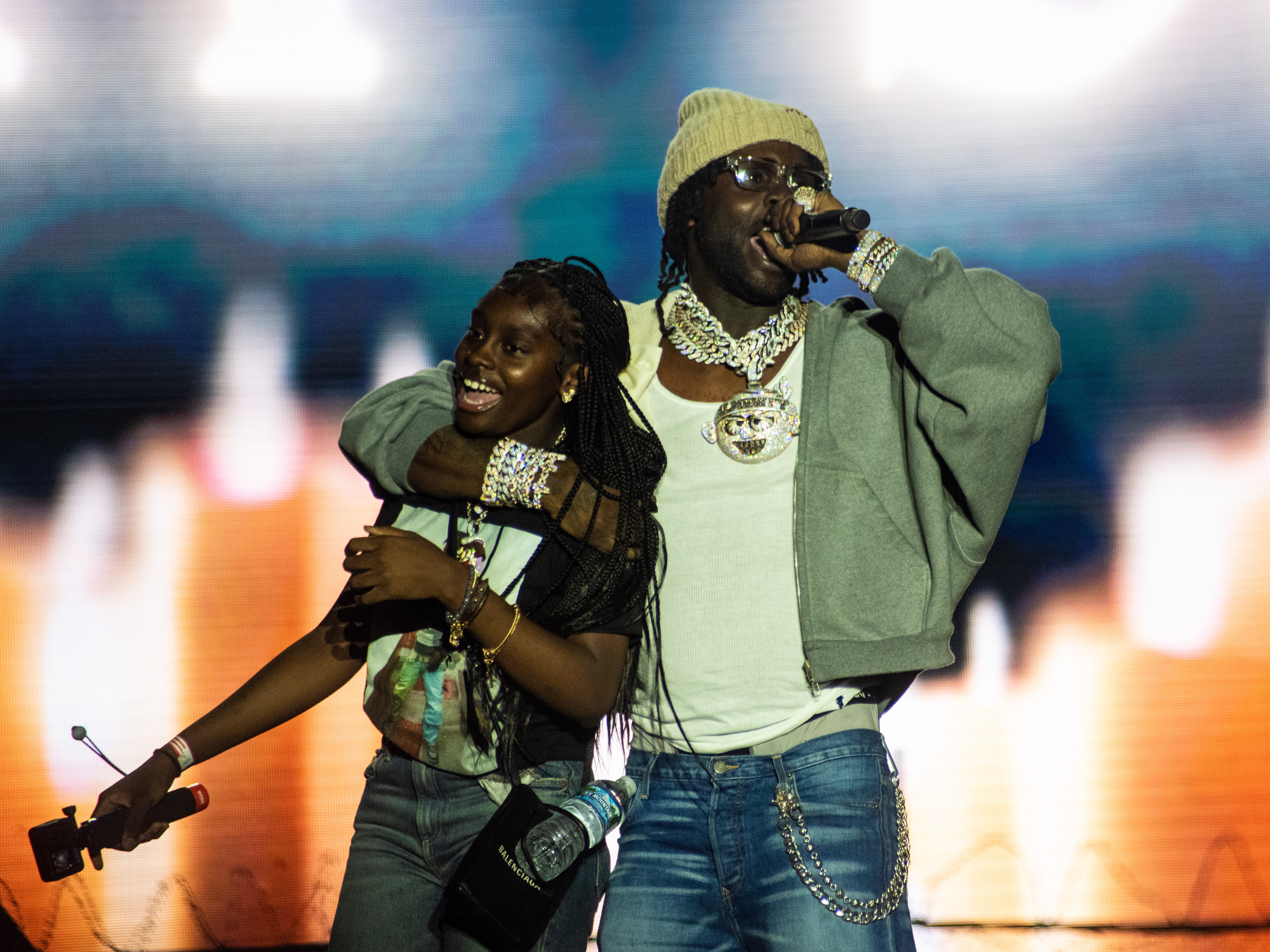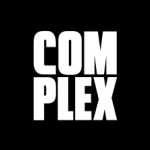
By: Mark P. Braboy
The last time that drill pioneer Chief Keef tried to perform in the Chicago area he was actually in California. The infamous 2015 hologram show—in which the rapper would be beamed in from Los Angeles to the Craze Fest in Hammond, Indiana—was met with extreme resistance from police during the tumultuous era of former Chicago Mayor Rahm Emanuel. The show, which was billed as a “Stop the Killing” concert to raise money for two Chicago teens killed, was shut down within a couple of minutes. It was the second hologram Keef show to be shut down that month, with the Emanuel office calling Keef “an unacceptable role model.”
Nine years and two mayoral administrations later, around 40,000 people gathered in SeatGeek Stadium in Bridgeview, Illinois—about 30 minutes outside of Chicago—to see the rapper make his return to the city that raised him. The fiery set was the first Chicago performance from Keef since 2012, when he hit the stage at Lollapalooza. (To put that in some context, Keef was 16 during his Lollapalooza performance; he is 28 now.)

Backstage was hot and chaotic, littered with figures from early in his career. There was DJ Kenn, who started working with Keef when he was only 12; DJ Amaris, one of the people who helped break Chief Keef in the City (he was, appropriately, also the DJ for his set); and Jordan Gilty, who famously performed the intro to “Love Sosa.” His daughter Kayden “Kay Kay” Cozart sat alongside uncles, aunts, and cousins and a mix of up-and-coming and legendary rappers like Lil Gnar, Kash Mirr, Big Daddy Deja, Vic Mensa, and Twista. In another area, you could catch Lyrical Lemonade founder Cole Bennett with heavyweights like Lil Yachty and Bu Thiam.
Showing up in a Black Escalade parked right in front of the ramp at 9:30 PM—30 minutes after his advertised set time—Chief Keef hopped out, hit the stage, and was welcomed with roaring cheers fit for a homecoming king.
“Chief Sosa is fucking back in the ‘Raq, goddamn! You see me! On folk’s ‘nem grave,” Keef yelled to the crowd. The set, which lasted around 45 minutes, featured all the classics day one Sosa fans would want to hear— “300,” “Love Sosa,” and “Street Runner”—combined with newer standouts, like “Treat Myself” and “Hadouken.” He was joined by his cousins Ballout and Tadoe, Doo Wop, and a surprise appearance from G Herbo, who was embraced by the Glory Boyz early in his career. “Almighty is the fucking GOAT of Chicago,” G Herbo loudly proclaimed before Keef performed “Faneto” for the first time in his city.
It was a special moment that epitomizes the way Keef has impacted Chicagoans over the years. Chief Keef is one of the defining voices in modern rap, and fans got to see him grow and evolve in real-time. It was also the endpoint of an 11-year journey.
For more than a decade, Chief Keef was essentially exiled from Chicago because of a mix of legal issues and fear mongering from local politicians centered around gang violence in the city. Despite being known as one of the most influential rappers from Chicago, Keef had completely disconnected himself from the area; he moved to Los Angeles in 2014 after the death of his cousin Mario “Big Glo aka Blood Money” Hess, leaving many of his issues by the wayside.
“Keef became the poster child for not only crime but also success in hip-hop, when it came to violence in Chicago,” Merk Murphy, Chief Keef’s co-manager, told Complex. “Chicago wanted to make him the face of violence while the rest of the world wanted to make him the face of a new genre of music.”
The first hurdle for his return was clearing out the legal and political red tape. Chief Keef had multiple outstanding child support warrants, which were caused by a default judgment after he stopped appearing for court dates. According to his longtime manager Peeda Pan, the judgment was based partially on his initial $6 Million Interscope deal, which wasn't representative of his financial situation at the time. (He was dropped by Interscope in 2014 after delivering only one album, Finally Rich.) He also had to clean things up politically, with the Rahm administration—who was publicly disdainful of Keef—no longer being an obstacle.
Cheo Patrick, a crisis manager for Keef, worked with Jason Lee, a senior advisor for current Chicago Mayor Brandon Johnson, and Peeda lawyer Mark Whitaker to clear a path for Keef to come home.
“It took a lot of time, it took a lot of conversation. Arrangements were made to take care of the kids, but still, we had to deal with that firsthand,” Peeda said. “It's just something that took some time to square away.”
Some of these developments had been in motion for a while. Chicago’s previous mayor, Lori Lightfoot, took office during the height of the COVID-19 pandemic and had a more progressive stance towards drill artists like Polo G, Lil Durk, and G Herbo—all rappers who, at various points, had been banned from performing in the city. Plans to return were halted because of the pandemic.
Under the advice of Patrick, Keef’s team was able to have the necessary conversations between the city of Chicago and Bridgeview, the Chicago Police Department, and the judges—paving the way for him to perform at Summer Smash without any issues from law enforcement.
“His team outside of me did a great job in reconciling things as far as understanding what obstacle was in the way,” Patrick said. “[It’s] is a great sign of maturity on his part to go back and look over everything and be ahead of the game with that stuff based on where he was and what he had to deal with so that these judges can look at him from a human standpoint vs. a name on a piece of paper.”
Berto Solorio is the CEO and owner of SPKRBX, one of the co-founders of Summer Smash. He’s also held ‘Ye’s Vulture listening sessions in February in Chicago and says that years of successful events—Summer Smash has been happening since 2018—with safe environments for fans earned them credibility from the city of Chicago.
“Having done this festival for so many years, I think there's a level of trust we've been able to build with the venue,” Solorio said. “So we've been able to produce a lot of really successful, safe environments. And so it kind of makes it a little bit of a smoother road for us to bring these artists home.”
For fans who missed the moment, Lyrical Lemonade, SPKRBX, and GMGT Management are collaborating on a forthcoming documentary about Chief Keef’s return, with the help of Blackish creator Kenya Barris.
“So we've been bouncing some ideas on how we structure what this story looks like, but we're documenting it in its entirety and building out a story that is viewable and digestible for the world,” Cole said. “I think this is such an inspiring story.”

The last day of the festival happened to fall on Father’s Day. And one of the standout moments came when Kay Kay and her dad joyfully embraced each other on stage. It’s a moment that capsulizes Keef’s story—from controversial child prodigy to open-hearted rap star who can headline a festival.
“People are seeing the evolved young guy that started on the South Side of Chicago and is now able to travel the world as an evolved person,” Peeda Pan said.

